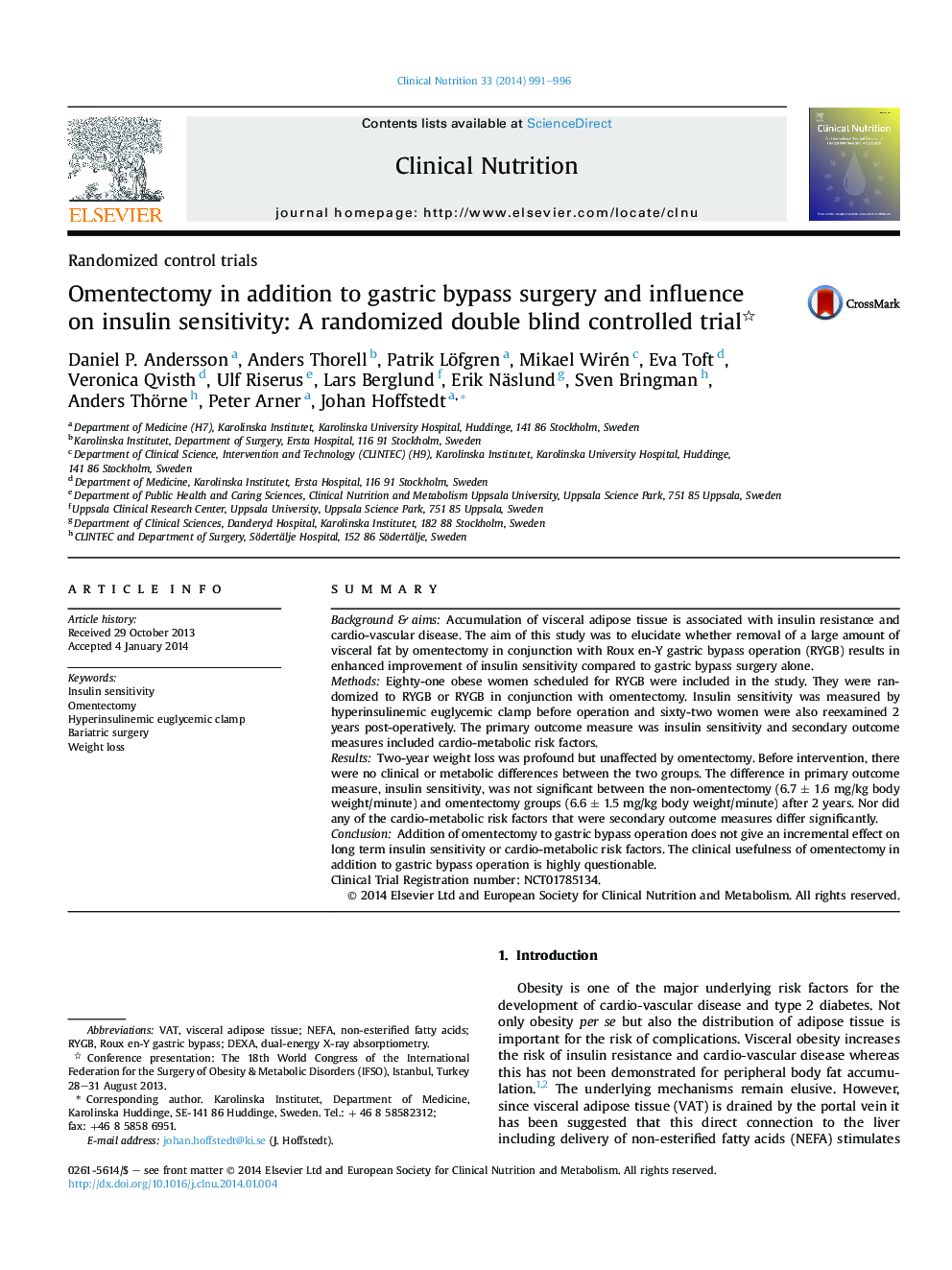| Article ID | Journal | Published Year | Pages | File Type |
|---|---|---|---|---|
| 5871777 | Clinical Nutrition | 2014 | 6 Pages |
SummaryBackground & aimsAccumulation of visceral adipose tissue is associated with insulin resistance and cardio-vascular disease. The aim of this study was to elucidate whether removal of a large amount of visceral fat by omentectomy in conjunction with Roux en-Y gastric bypass operation (RYGB) results in enhanced improvement of insulin sensitivity compared to gastric bypass surgery alone.MethodsEighty-one obese women scheduled for RYGB were included in the study. They were randomized to RYGB or RYGB in conjunction with omentectomy. Insulin sensitivity was measured by hyperinsulinemic euglycemic clamp before operation and sixty-two women were also reexamined 2 years post-operatively. The primary outcome measure was insulin sensitivity and secondary outcome measures included cardio-metabolic risk factors.ResultsTwo-year weight loss was profound but unaffected by omentectomy. Before intervention, there were no clinical or metabolic differences between the two groups. The difference in primary outcome measure, insulin sensitivity, was not significant between the non-omentectomy (6.7 ± 1.6 mg/kg body weight/minute) and omentectomy groups (6.6 ± 1.5 mg/kg body weight/minute) after 2 years. Nor did any of the cardio-metabolic risk factors that were secondary outcome measures differ significantly.ConclusionAddition of omentectomy to gastric bypass operation does not give an incremental effect on long term insulin sensitivity or cardio-metabolic risk factors. The clinical usefulness of omentectomy in addition to gastric bypass operation is highly questionable.Clinical Trial Registration number: NCT01785134.
